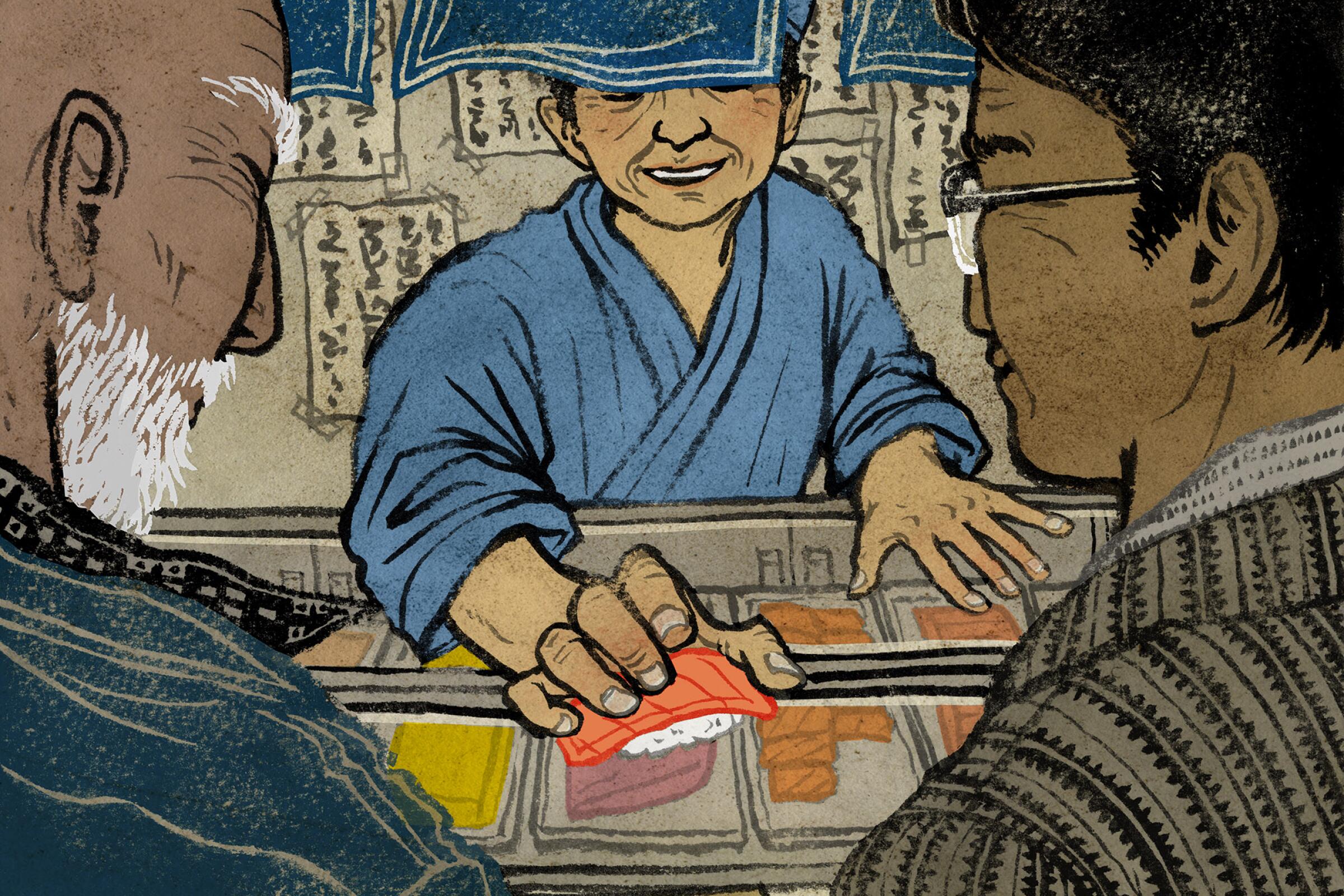More From the Los Angeles Times
-
-
Feb. 17, 2024
-
-

Los Angeles is a sushi city — home to countless restaurants that treat raw fish with the sort of reverence usually reserved for religious rites. But this wasn’t always the case. It took an unlikely alliance to make it happen.
It started in Tokyo in 1965, with a meal shared by two friends in the food import business who made an unplanned stop at a sushi house. It was Harry Wolff’s first encounter with the cuisine, and it sparked an idea that he shared with Noritoshi Kanai: If sushi could find purchase on the menus of L.A.’s Japanese restaurants, Kanai’s Mutual Trading Co. stood to benefit. It would import the items needed to serve sushi — from the nori to the knives.
The dream was to create the Southland’s sushi ecosystem. But for the plan to work, L.A. restaurants needed to give sushi a shot. When the owner of Kawafuku agreed to open a sushi bar at his Little Tokyo haunt, the effort got a major boost. By the 1980s, sushi was ubiquitous, both as a cuisine and a cultural touchstone.
Kanai and Wolff — two friends bound by a love of food — sparked L.A.’s sushi obsession. And they changed the way Angelenos eat.

An unlikely pair of Southern California businessmen paved the way for the sushi revolution in Los Angeles, upending American dining — and their own lives.
L.A.’s sushi revolution began in the 1960s at Kawafuku, a grand Little Tokyo restaurant whose story is one of glamour, heartbreak and innovation.
Before Koda Farms debuted a new strain of rice that would fuel the sushi boom, the family behind it lost nearly everything during World War II.
Ever since L.A’s first sushi bar opened in the 1960s, the food has been a mainstay in Little Tokyo. A tour reveals how sushi has been transformed by the city.
The current generation of omakase chefs in Los Angeles are returning to the essence of the cuisine. A trip to Tokyo confirms what’s been driving their pursuit for excellence.
From vegan sushi to hand rolls, modest supermarket sushi to high-end omakase — the greater-than-ever scene in L.A. has what you’re looking for.